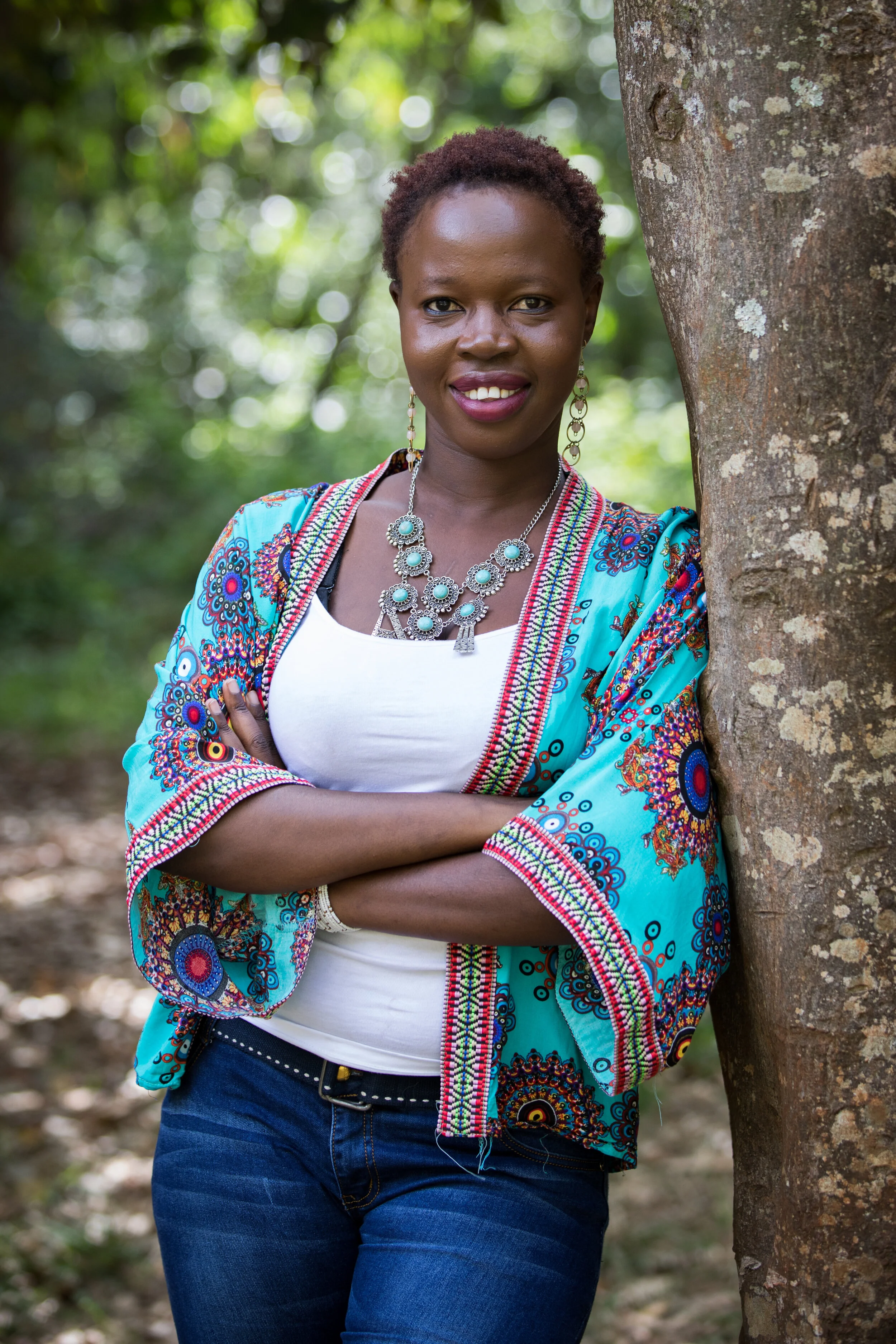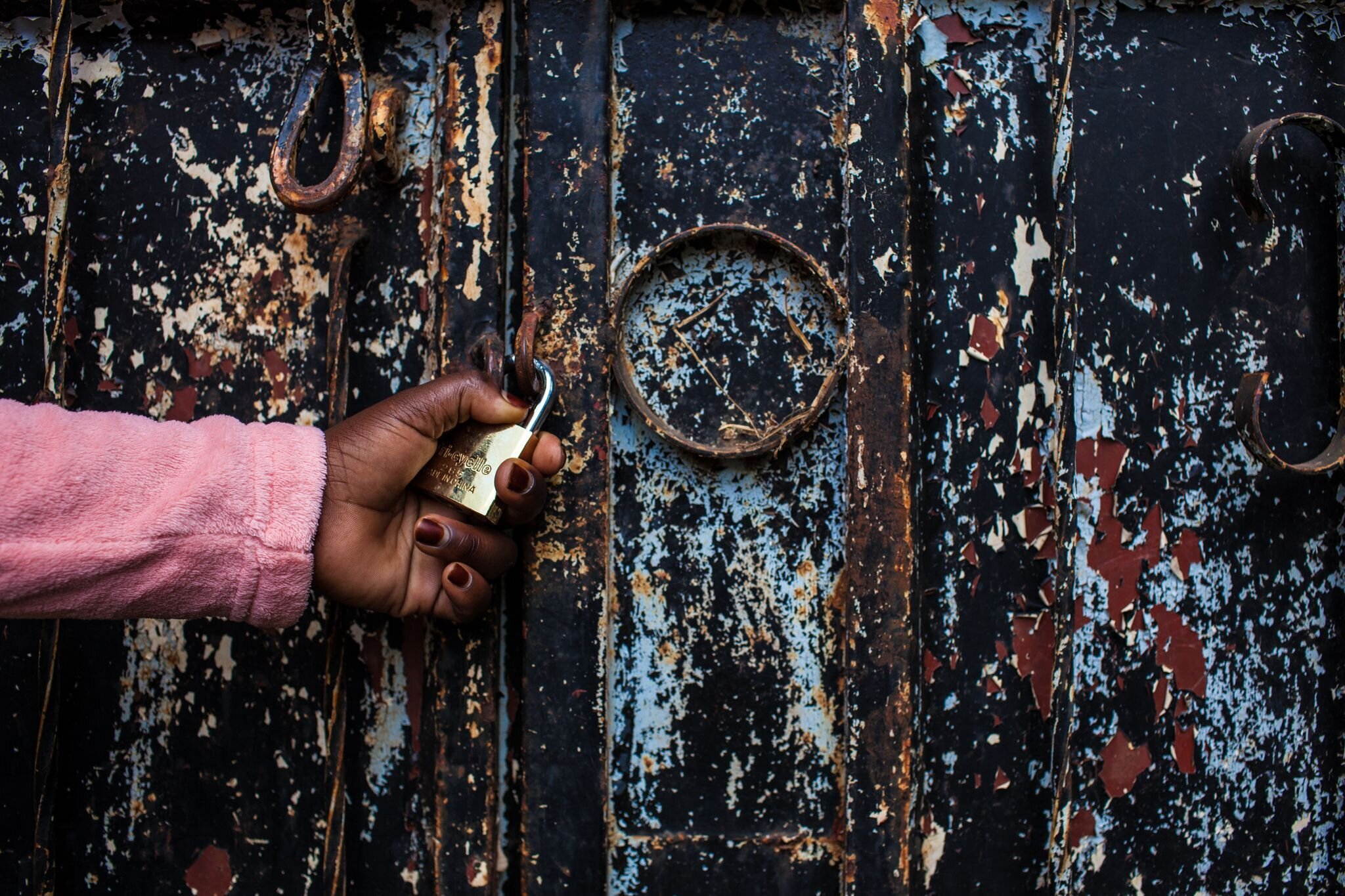Sophie Otiende was 13-years-old when she moved in with relatives who lived close to the school she planned to attend. But she didn't go to class the following Monday or Tuesday. By Friday, she knew something was wrong.
She asked when she would go to school and was hit. What followed was "one year of the most painful part of my life." A few years later, Sophie finally discovered the term for what had happened to her – human trafficking.
Human trafficking is a violation of human rights and a form of modern-day slavery that involves the exploitation of women, men and children either for forced labour or sexual purposes. Generating approximately $32 billion annually, trafficking is the second largest illegal trade in the world and the fastest-growing criminal industry. Every country is affected by it, whether as the country of origin, transit or destination for victims.
Recently, Photographers Without Borders Founder Danielle Da Silva sat down with Sophie – a feminist, teacher and a survivor advocate for HAART Kenya, an NGO organization dedicated to supporting survivors of trafficking and raising awareness. They discussed the intricate connection between colonialism, capitalism and trafficking, and how photographers can empower survivors to become their own storytellers.
To raise awareness on World Day Against Trafficking in Persons, here's what Sophie shared about the complex nature of trafficking and how to become a more ethical storyteller by empowering survivors to tell their stories.
Neutrality is impossible, so be thoughtful about the narratives you create.
As a storyteller, it's imperative to know your personal biases because they influence the story you tell – even subconsciously. How you decide to convey a story, such as the pieces of information you choose to include or omit, creates a certain narrative.
"There's a responsibility to be taken in terms of how stories are told, how they influence culture and how they perpetrate violence and inequality. You don't get to say, 'I was just telling a story. You have to be held accountable for perpetrating a certain narrative," says Sophie.
Unfortunately, stories about human trafficking often perpetuate narratives of power. For example, using the term 'victim' to describe someone who has been trafficked or further exploiting survivors through poverty porn.
To develop a narrative that's unique and uplifting, Sophie says it's important to note that "your story is not a single narrative. If you write a story about a survivor, it doesn't exist in a vacuum. So you need to research and find out what are the stories out there about survivors? What is the general narrative? Is my story going against it? How is it contributing? In most cases, you're not the first person to tell the story."
While all stories inherently amplify one voice and suppress another, it's essential to empower people who have been through traumatic experiences by constantly asking yourself, whose voice am I uplifting? What narrative am I telling?
Always collaborate with the person whose story you're sharing.
Before delving into an assignment, it's important to start from a place of humility and acknowledge that you don't know everything. Sophie explains how you must be willing to dismantle any preconceived notions you may hold about an experience in order to properly collaborate with a person.
You have "to identify the power that stories hold, to identify that as a storyteller, you have power. Most of the time, the stories that have been written are by people from the west who come in with a lot of privilege. So recognize the power that you have because that power has the ability to destroy or build up someone and to open eyes."
When starting your next story, set aside time to talk with the person you're photographing to build a relationship with them, listen to their story and learn from them. Reflect on how you can make your subject the focal point and develop the story concept together.
Even the simple act of asking if they like the pictures you have taken of them demonstrates that their opinion is valuable and is an easy way to show that you acknowledge and appreciate their point of view." The story really doesn't belong to you just because you wrote it. It’s their story, it’s their right," says Sophie.
Highlight a survivor's resilience, instead of perpetuating pity.
The topic of human trafficking is complex, so it's essential to paint a complete picture that doesn't solely depict the systems that continue to perpetuate it (colonialism, slavery, forced labour, and sexual exploitation).
"The fact that everyone wants to make survivors look weak and tired is a general narrative of how survivors are supposed to look. The idea is, 'Let’s empower them to the point we can pity them. We don't want to empower them to the point where they can be better than us, or where they can ask us questions and make demands.' The way we often tell stories of survivors is always from a perspective of pity, rather than empowerment," says Sophie.
Language is crucial here, so it's important to use terms such as 'trafficking survivor' instead of 'victim' to help shift the narrative by showing resiliency and empowering the survivor. Be cognizant not to misquote or choose just one aspect of the interview to base your entire story around. Instead, show survivors standing in solidarity with one another and highlight the work being done to end trafficking.
If you plan to share a story of survivors, keep Sophie's advice and this message from author Yaa Gyasi in mind. "We believe the one who has power. He is the one who gets to write the story. So when you study history, you must ask yourself, Whose story am I missing? Whose voice was suppressed so that this voice could come forth? Once you have figured that out, you must find that story too. From there you get a clearer, yet still imperfect, picture."
As storytellers, it is time to start demanding ethical stories of survivors – both from others and from ourselves.
Join HAART Kenya in their efforts to raise $50,000 to support human trafficking survivors who have been affected by the pandemic by donating at http://haartkenya.org/donate.




















